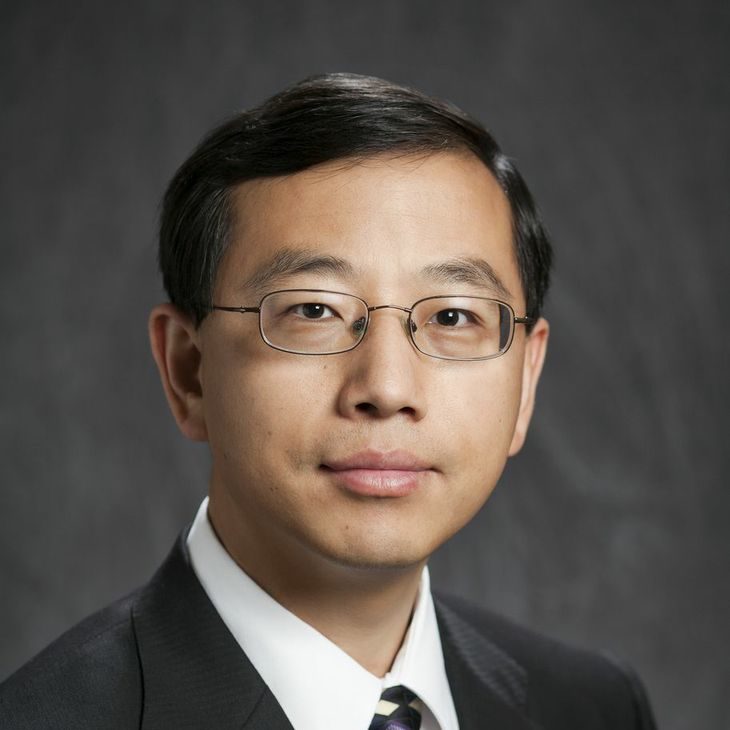
- This event has passed.
Advanced Computing Workshop
August 19, 2025 @ 8:00 am – August 21, 2025 @ 5:00 pm

This workshop focuses on Hybrid MPI-CUDA Programming for Massively Parallel Applications on Large GPU Clusters and will prepare Texas A&M researchers to use the Launch cluster and the upcoming NVIDIA DGX H200 Superpod purchased by the Texas A&M University System
REGISTRATION CLOSED
Workshop Overview
- ROOM: Innovative Learning Classroom Building (ILCB), Texas A&M University, College Station, TX
- DATE: August 19–21
- TIME: 8:00 am to 5:00 pm
- INSTRUCTOR: Dr. Jian Tao, Assistant Director, TAMIDS
- REGISTRATION: Registration Form , Deadline is August 14, 2025
The rapid evolution of high-performance computing and increasing utilization across research and operations has made GPU programming an essential skill for researchers and engineers working with computationally intensive applications. This workshop addresses the growing demand for expertise in massively parallel programming by combining CUDA for GPU acceleration with Message Passing Interface (MPI) for distributed computing across multiple nodes.
This three-day in-person intensive workshop represents a collaborative effort between Texas A&M High Performance Research Computing (HPRC), the Texas A&M Institute of Data Science (TAMIDS), the NSF National Center for Atmospheric Research (NCAR), and the Texas A&M University System (TAMUS) to advance GPU programming skills for massively parallel computing applications. Participants will gain hands-on experience with Texas A&M’s state-of-the-art Launch computing cluster, CUDA programming fundamentals, MPI parallel programming patterns, and the integration of both technologies for multi-node, multi-GPU applications using Texas A&M’s world-class supercomputing infrastructure.
The skills taught in this workshop will prepare researchers to leverage state-of-the-art resources like the Launch computing cluster and the upcoming NVIDIA DGX H200 SuperPod purchased by TAMUS.
Prerequisites and Preparation
Required Background Knowledge
Participants must have solid programming experience in C or C++, including familiarity with pointers, arrays, and function implementations. A basic understanding of parallel computing concepts is helpful but not required, as fundamental principles will be covered during the workshop. Previous experience with Linux command-line environments and batch job submission systems is recommended, as all practical exercises will be conducted on Texas A&M’s supercomputing clusters.
Technical Requirements
Workshop organizers will provide temporary accounts on the HPRC systems, including access to the HPRC cluster with their extensive GPU resources. Participants should ensure their laptops have an up-to-date browser.
NSF ACCESS ID
To participate in the hands-on sessions, you will need an ACCESS ID to get on the Launch cluster. If you do not have one, you can receive one for FREE. Please see the walkthrough to register for an ACCESS ID at: https://hprc.tamu.edu/kb/Helpful-Pages/ACCESS-ID.
Learning Objectives
Day 1: Introduction to Launch and CUDA Programming Fundamentals
Participants will have the option to choose one of the two breakout options for day one:
Launch Breakout: This workshop aims to fill the gap between using personal computing devices and working with a Linux supercomputer. By the end of this workshop, participants will be able to interact with Launch supercomputer via Launch Open OnDemand (OOD) Portal, run interactive coding apps on Launch, open a terminal on Launch, learn Linux terminal commands, explore Launch hardware and knowledgebase, utilize prebuilt software modules and work with SLURM batch system, and set up coding environment for their favorite coding language on Launch. For more information, check out the HPRC Launch Beginner Workshop page. Attendees of the Advanced Computing Workshop do NOT need to register for the Launch workshop.
CUDA Breakout: Participants will master the essential concepts of GPU programming using CUDA, building from basic kernel development to advanced memory management techniques. The curriculum covers GPU architecture, threading models, memory hierarchy optimization, and performance analysis tools that are crucial for effective GPU programming. Hands-on exercises will provide immediate application of theoretical concepts using Texas A&M’s GPU clusters, ensuring participants develop both understanding and practical experience.
Day 2: MPI and Parallel Programming Patterns
The second day focuses on distributed computing using MPI, covering fundamental communication patterns, collective operations, and scalable algorithm design. Participants will learn to decompose computational problems across multiple processors and implement efficient communication strategies for large-scale parallel applications. The training emphasizes modern MPI features and best practices for achieving optimal performance on contemporary supercomputing architectures.
Day 3: Integrated MPI+CUDA Applications
The final day synthesizes knowledge from the previous sessions, teaching participants to develop applications that leverage both GPU acceleration and distributed computing. This includes managing GPU resources across multiple nodes, optimizing data movement between CPUs and GPUs in distributed environments, and implementing scalable multi-GPU algorithms. Real-world application examples will demonstrate the practical implementation of these advanced programming paradigms.
Travel Support
We will reimburse up to $800 in travel expenses for participants from outside the Bryan College Station area. After the workshop, we will reach out to collect receipts and reimburse you.
Texas A&M’s payment processing system requires non-TAMUS members to fill out a Substitute W9 & Vendor Direct Deposit Form. If you believe you are already set up in Texas A&M’s system, please let us know, and we can verify with our business administrators. Please fill out the applicable forms and return them to TAMIDS via emailing Angie Rollins (a-rollins@tamu.edu), faxing 979.458.7511, or handing in a physical copy during the event.
Remember to bring your Texas Hotel Occupancy Tax Exemption Certificate and Texas Sales and Use Tax Exemption Certificate while traveling to avoid paying taxes. We cannot reimburse any taxes you have paid. Additionally, State of Texas employees (non-TAMUS only) must also fill out a State of Texas Employee Statement to confirm that there is no conflict of interest in attending.
Workshop Organizers

Dr. Jian Tao
Assistant Director for Project Development & TAMIDS Digital Twin Lab Director; Assistant Professor, Visual Computing and Creative Media Section (College of Performance, Visualization, & Fine Arts)
jtao@tamu.edu

Dr. Honggao Liu
Director, High Performance Research Computing
honggao@tamu.edu

Dr. John Dennis
Scientist, National Center for Atmospheric Research
dennis@ucar.edu

Dr. Thang Nguyen Ha
Associate Research Scientist, High Performance Research Computing
thangha@tamu.edu

Dr. Dhruva K. Chakravorty
Director for User Services and Research, High Performance Research Computing
chakravorty@tamu.edu

Dr. Lisa M. Perez
Director for Advanced Computing Enablement, High Performance Research Computing
perez@tamu.edu

Dr. Sandra Nite
Research Scientist, High Performance Research Computing
s-nite@tamu.edu
If you have any questions regarding the Launch cluster, accessing the HPRC systems, or about the learning objectives, please email events@hprc.tamu.edu.
Travel support and logistics can be directed to Angie Rollins, Administrative Coordinator at the Texas A&M Institute of Data Science
PHONE: (979) 458-6252
FAX: (979) 458-7511
EMAIL: a-rollins@tamu.edu
Acknowledgement
The Advanced Computing Workshop is supported in part by the NSF Office of Advanced Cyberinfrastructure (OAC) awards 2232895, 2513009, and 2513010, and by the National Center for Atmospheric Research (NCAR).



